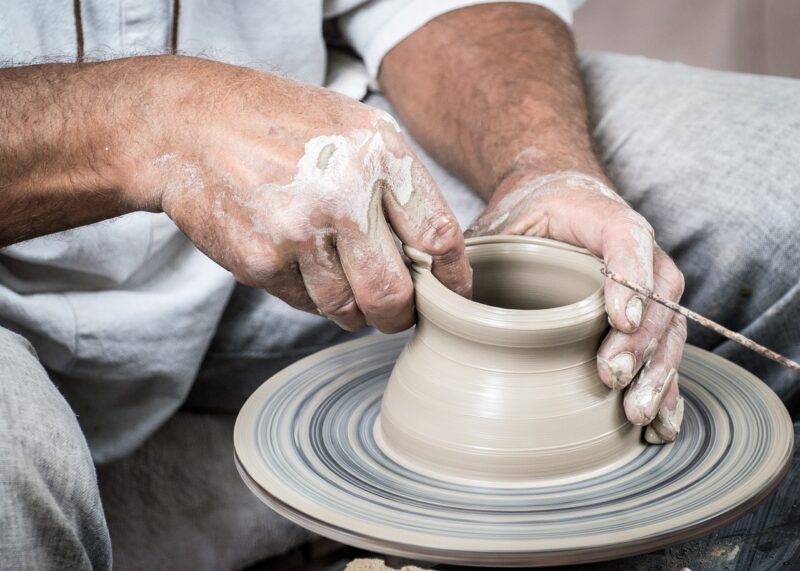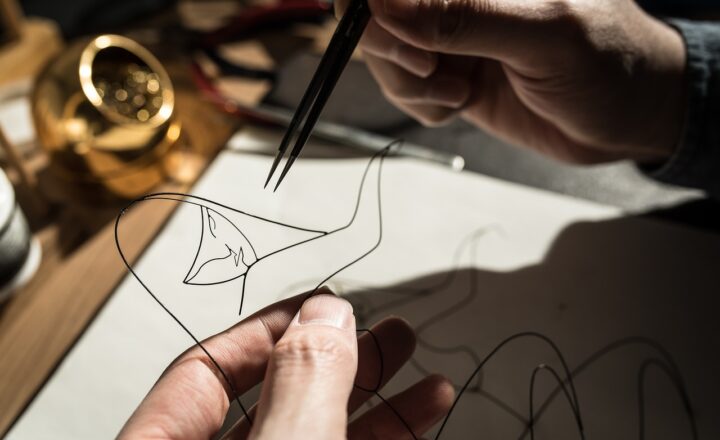How to Turn Your Passion for DIY Into a Full-Time Career as a Maker
November 17, 2024

The world is increasingly filled with individuals who have a passion for creating, designing, and crafting. What if you could take that hobby and turn it into a full-time career? Here’s how you can transform your passion for DIY (do-it-yourself) projects into a thriving business as a maker.
1. Understanding the Maker Movement
The maker movement is a cultural trend that encourages individuals to create, build, and innovate, often using tools, materials, and techniques that were previously only available to professionals. Makers are driven by creativity and the desire to learn and share their skills with others. A key aspect of the maker movement is community. Whether through local maker spaces, workshops, or online platforms, makers share ideas and combine their talents to create unique products.
If you’re passionate about DIY, joining this movement could lead to exciting opportunities!
2. Identifying Your Niche
To turn your DIY passion into a career, begin by identifying a niche that resonates with you and has market potential. Ask yourself:
- What types of DIY projects do you enjoy the most?
- What skills do you possess that can be monetized?
- Is there a demand for your DIY creations?
For instance, you might be good at woodworking, sewing, or making handmade jewelry. Your niche could be anything from upcycled home decor to custom clothing or unique art pieces.
Once you identify a niche, it’s crucial to validate it. Research trends and competitors in the market using tools like Google Trends, Pinterest, and Etsy to determine if demand exists for your DIY products.
3. Establishing Your Brand
Once you’ve identified your niche, the next step is to develop your personal brand as a maker. Your brand represents your unique style and values, so it’s essential to establish a solid brand identity by:
- Creating a Memorable Logo: Your logo should reflect your DIY style and make your products recognizable.
- Selecting a Brand Name: Choose a name that resonates with your products and audience while being easy to remember.
- Crafting a Story: Share the story behind your DIY passion and why you want to make it into a career. This builds authenticity and connects with your audience emotionally.
Your brand will play a crucial role in attracting customers and building loyalty, so take the time to develop it thoughtfully.
4. Setting Up Your Workshop
To turn your DIY passion into a career, you’ll need a dedicated workspace. Here are some tips for setting up an efficient workshop:
- Organize Your Tools: Ensure all necessary tools are easily accessible. Good organization saves time and increases productivity.
- Create a Safe Environment: Safety should be your priority. Use appropriate safety gear and ensure proper ventilation if using chemicals or tools that produce dust.
- Focus on Functionality: Your workspace should facilitate efficiency. Have enough surface area to work on multiple projects at once if needed.
Once your workshop is set up, you’ll be ready to dive into creating your DIY projects!
5. Starting Your Business
With your niche defined, brand established, and workspace ready, it’s time to launch your maker business. Here’s how:
- Choose a Business Model: You could sell directly to consumers through platforms like Etsy, create your online store using Shopify, or explore wholesale opportunities with local boutiques.
- Set Up Social Media Profiles: Utilize platforms such as Instagram and Pinterest to showcase your products visually and connect with your audience. Build a community around your work.
- Develop a Marketing Strategy: Use email marketing, social media ads, and blogging to reach your target market effectively. Offer limited-time promotions or discounts to entice first-time buyers.
Remember, persistence is key; many successful makers had to learn through trial and error before finding their stride.
6. Expanding Your Skill Set
As a maker, the learning never stops. Regularly explore new techniques and expand your skill set by taking courses, attending workshops, or joining maker communities. This continuous improvement not only helps you create higher quality products but also keeps your business competitive.
Explore skills that complement your DIY projects such as:
- Digital Design: Enhancing designs using graphic design or 3D modeling tools enhances your product line.
- Marketing Skills: Understanding social media marketing, SEO, or content creation can dramatically elevate your business.
- Business Management: Learn about inventory management, accounting, pricing strategies, and customer service to run your business smoothly.
Continuous skill enhancement will keep your DIY projects fresh and innovative, appealing to your existing and new customers alike.
7. Building a Community
In a world dominated by mass production, DIY enthusiasts cherish community. Engage with fellow makers online and offline by:
- Participating in Local Markets: Attend craft fairs, maker spaces, or local flea markets to showcase your creations and connect with fellow makers.
- Joining Online Forums: Connect with makers on platforms like Reddit, Facebook groups, or maker-specific forums to share ideas, advice, and encouragement.
- Hosting Workshops: Share your passion and skills with others by teaching workshops. This not only establishes you as an expert but also brings in additional income and strengthens your brand.
Community building enhances your visibility and fosters valuable connections that can lead to opportunities, collaborations, and business growth.
8. Staying Resilient in a Competitive Market
The road to success as a maker can be filled with challenges. Staying resilient is crucial. Here are some tips to help you navigate obstacles:
- Embrace Feedback: Constructive criticism can help you improve your products and customer service. Don’t shy away from it—embrace it as an opportunity for growth.
- Adapt to Trends: Keep an eye on industry trends and adapt your offerings to meet changing consumer preferences without losing your unique touch.
- Maintain Work-Life Balance: Avoid burnout by setting realistic goals and taking breaks to recharge. A healthy balance fosters creativity and productivity in the long run.
Resilience and adaptability are essential traits for any entrepreneur, particularly in the maker segment, where creativity meets commerce.
Conclusion
Turning your passion for DIY into a full-time career as a maker is not only possible; it’s a rewarding journey that allows you to earn a living doing what you love. By understanding the maker movement, identifying your niche, establishing your brand, and continually improving your skills, you can carve out a successful career path in this vibrant community. Remember to embrace challenges, engage with the maker community, and continually innovate your craft. The satisfaction of creating, sharing, and earning through your passion awaits!
If you’re ready to take the plunge, begin planning your maker journey today. The creative world needs more passionate individuals ready to inspire, innovate, and share their unique creations.






